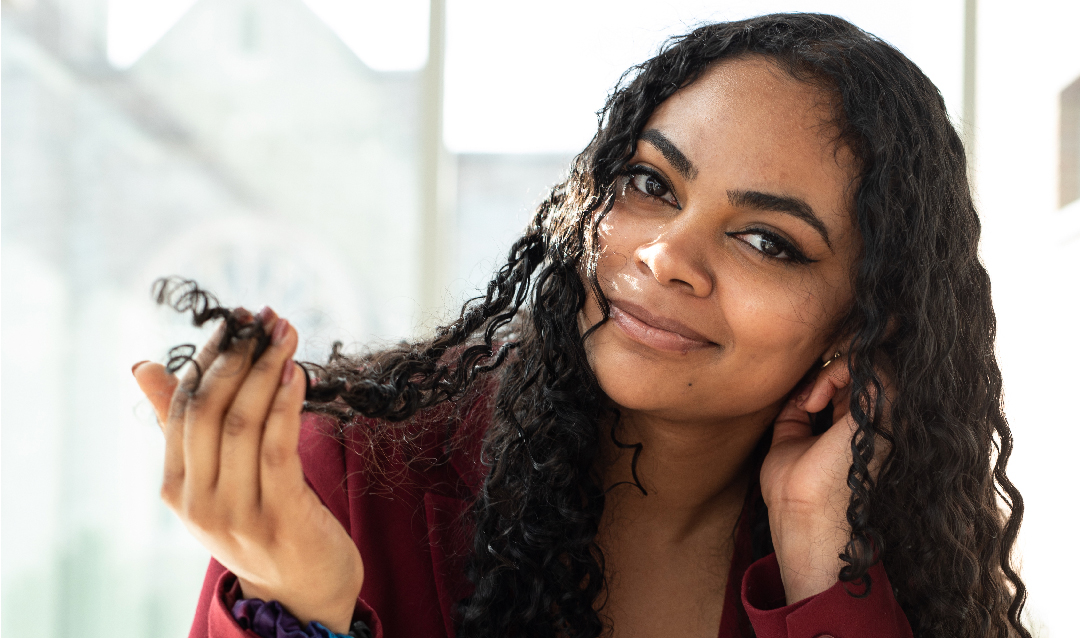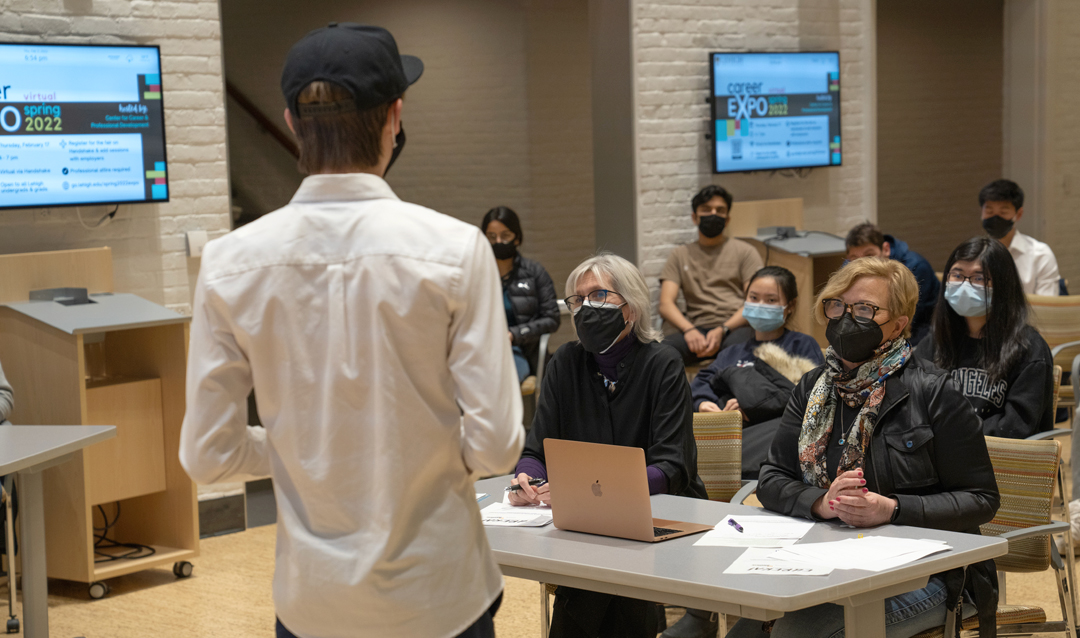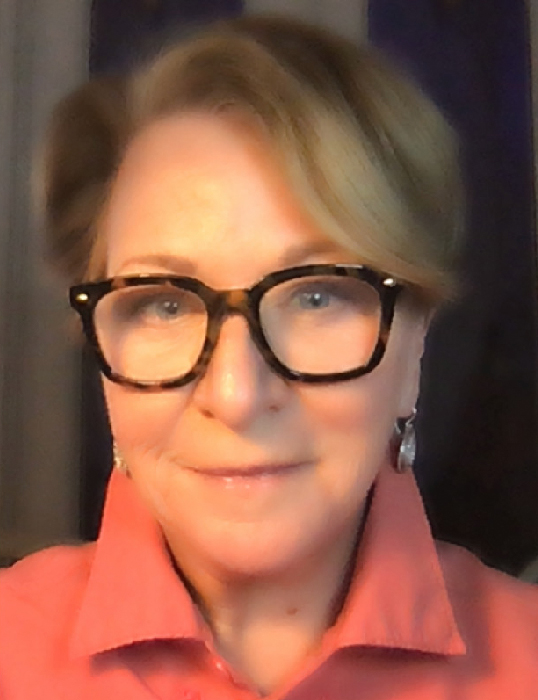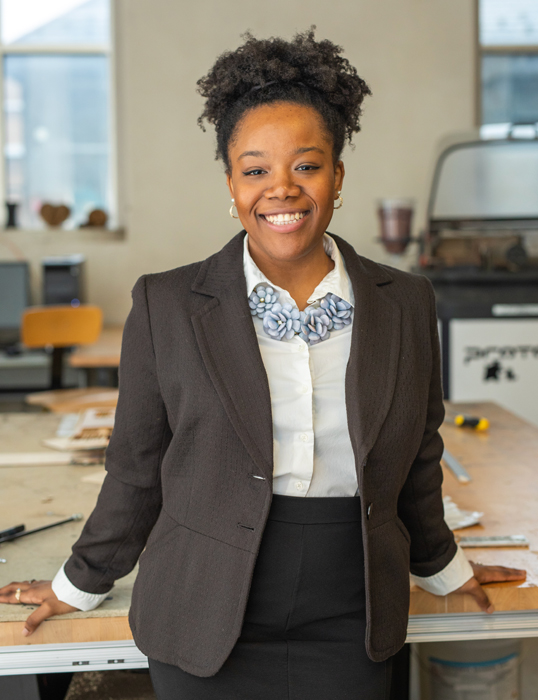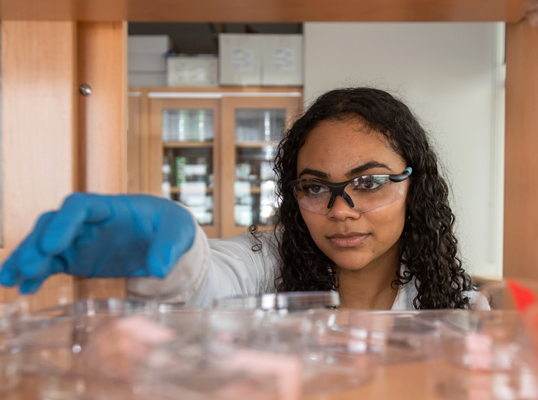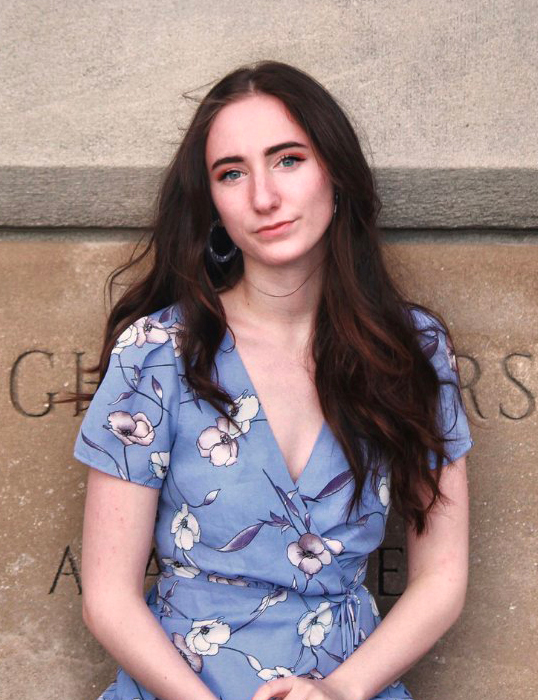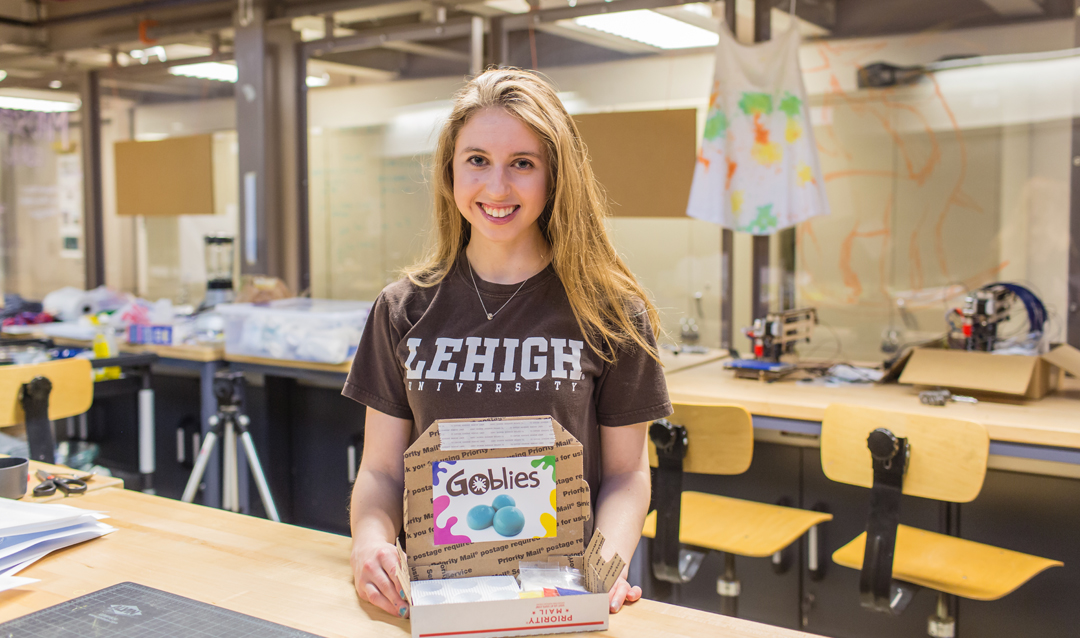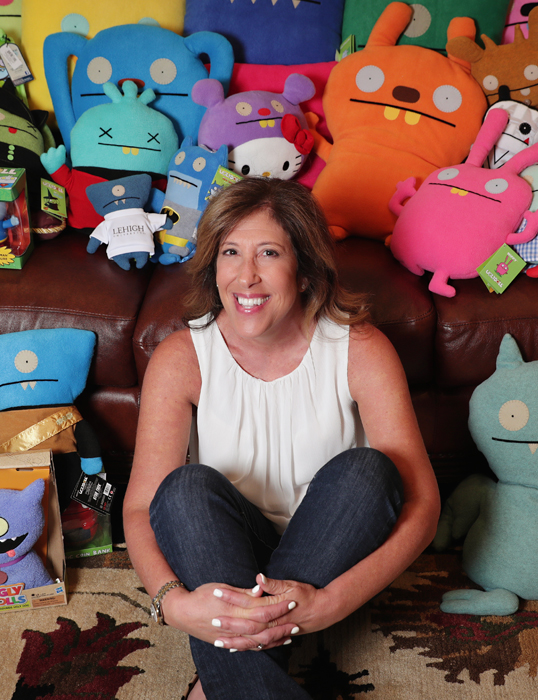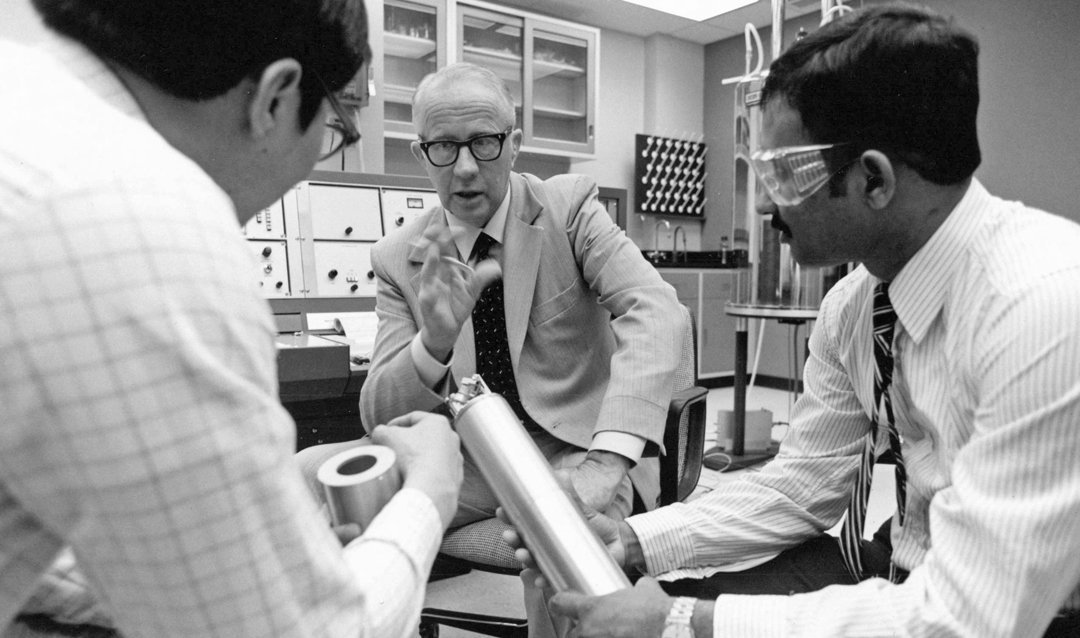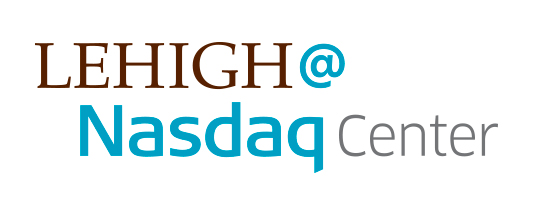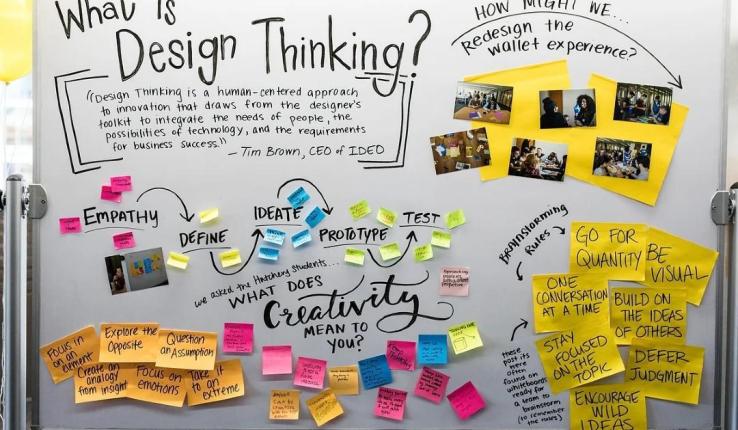Sareena Karim ’22 remembers the first time she pitched the idea for her custom hair care company, Foli-Q, at the EUREKA! Venture Program Pitch Night powered by Lehigh’s Baker Institute for Entrepreneurship, Creativity & Innovation.
Karim is the daughter of an African American mother and Bangladeshi father, and she has struggled since she was a young girl to find a hair care routine that enhanced her long curls without weighing them down or creating frizz.
A bioengineering major with a minor in entrepreneurship, Karim designed her product from personal experience. She had the educational background and drive to get her company started, but Karim admits it was intimidating as a minority woman.
“A lot of times when you think of a business owner, you think of a white man. You don’t often see women in that role,” Karim said. “People tend to gravitate toward groups of people who look like them, so if minority groups aren’t represented, there will be less minority groups in that field and less attracted to it.”
It’s an issue that Lehigh’s Baker Institute is tackling with the launch of Rightful Inclusive Student Entrepreneurship, or R.I.S.E. What is now a research-backed initiative with goals to improve diversity, inclusion and equity in Baker Institute programs, R.I.S.E. began as a grassroots effort to explore a long-time gender imbalance in student entrepreneurship on campus.
The effort found momentum when Baker Institute Executive Director Lisa Getzler recognized that far fewer women than men were proposing student venture projects during the institute’s EUREKA! Venture Program Pitch Nights, a monthly initiative that allows students to pitch business ideas to a panel of reviewers, with an opportunity to win funding, mentoring and other resources to help get their ideas off the ground.


